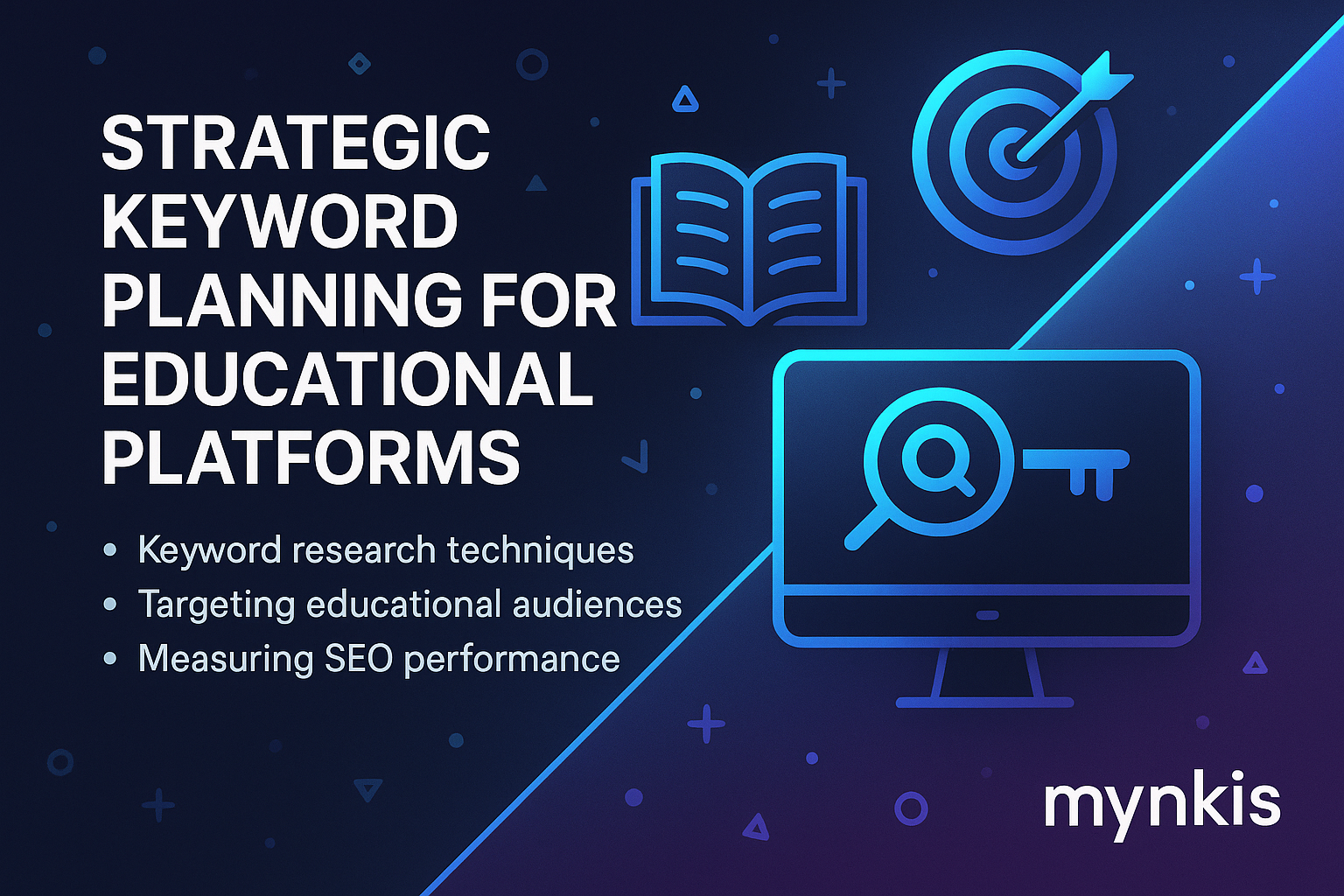Schedule a Demo
In my extensive work with educational institutions, I've seen firsthand how critical keyword planning is to the success of their digital presence. When developing custom learning management systems and websites for schools and universities, integrating strategic keyword planning isn't just an afterthought—it's a core component from the start. Strategic keyword planning ensures that your educational platform attracts the right audience and gets the visibility it deserves.
Let's break it down. Keyword planning involves identifying and leveraging the terms and phrases prospective students and faculty use when they search for educational offerings. This process goes beyond mere guesswork; it's about understanding the language of your target audience and how they interact with search engines. For schools aiming to launch or improve custom educational solutions, this can mean the difference between a platform that gathers dust and one that becomes the epicenter of learning for your community.
The foundation of an effective keyword strategy is research. I always advocate beginning with comprehensive research that taps into tools like Google Keyword Planner or industry-specific keyword analysis software. These tools provide insights into search volume, competition levels, and related terms, laying the groundwork for a keyword framework that can resonate with your user base.
Building on this, we need to think beyond the generic terms such as “online courses” or “learning management systems.” Instead, zero in on niche keywords that reflect the specific services your educational institution offers. For instance, if your university specializes in STEM programs, then keywords like "STEM education platform" or "interactive science learning software" can be crucial. These specific, long-tail keywords can attract a more focused audience and lead to higher conversion rates.
Understanding user intent is also key. We're aiming to optimize not just for any traffic, but for users genuinely interested in what your school provides. Think about whether your target users are seeking information, comparing options, or ready to enroll. Aligning your keyword choices with their intent will make your platform more visible and relevant during critical points of their educational journey.
Once you've identified your ideal keywords, integration becomes the next step. For custom learning management systems and websites, this means weaving your keywords thoughtfully into the site's structure. In my experience, ensuring that keywords are naturally incorporated into URLs, meta tags, headers, and body content can significantly enhance SEO performance without compromising user experience.
I've found that longer articles, varied in structure with short and long paragraphs, are especially effective for embedding keywords naturally. Such content not only caters to search engine algorithms but also keeps readers engaged. For instance, while a punchy two-sentence paragraph can succinctly present a concept like the relevance of keyword selection, a more extended narrative of five or six sentences allows for deeper dives into how those keywords affect search traffic and conversion rates.
Moreover, quality content that's rich with valuable insights and information tends to attract backlinks from authoritative sites, further boosting your platform's visibility. Regularly updating your content with fresh, keyword-rich articles—perhaps on educational trends, innovative teaching methods, or campus news—keeps your website not only SEO-optimized but also relevant and engaging.
Finally, monitoring and analyzing the performance of your keyword strategy is crucial for continuous improvement. Leveraging analytics tools such as Google Analytics or specialized SEO software enables us to track which keywords drive traffic, how users interact with the platform, and where there are opportunities for enhancement.
From my perspective, it's a misconception that once the keyword strategy is set, it remains static. Educational institutions experience shifts in offerings and student interests, which necessitates revisiting and possibly revising the keyword strategy. Setting up regular reviews to assess and tweak your keywords will ensure your platform remains competitive and relevant.
Reflecting on my work, I've witnessed the transformation possible when keyword planning is given the importance it deserves. Schools and universities that engaged deeply with their keyword strategies saw not only boosted search traffic but also a tangible increase in engagement and enrollment—demonstrating that strategic keyword planning truly is a cornerstone of digital excellence in education.
